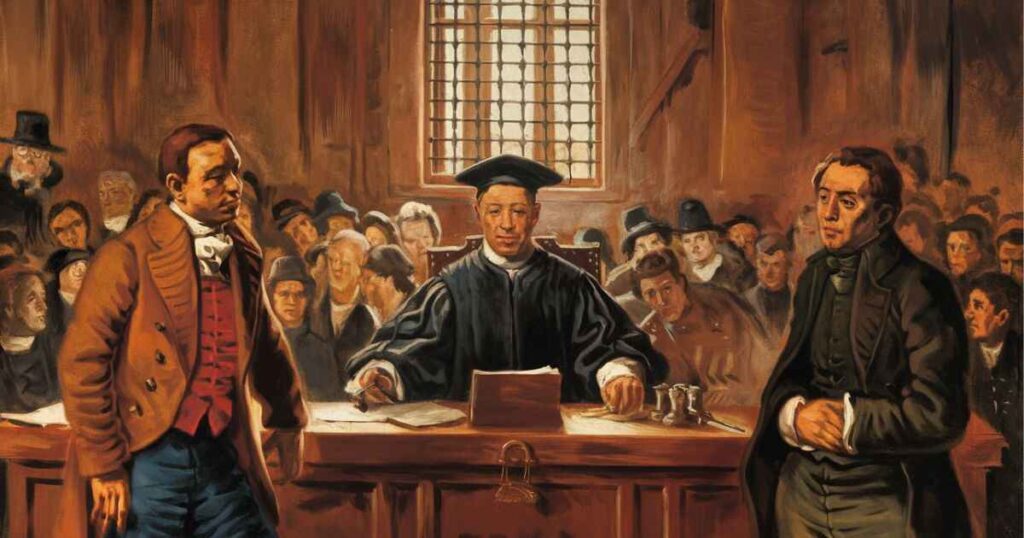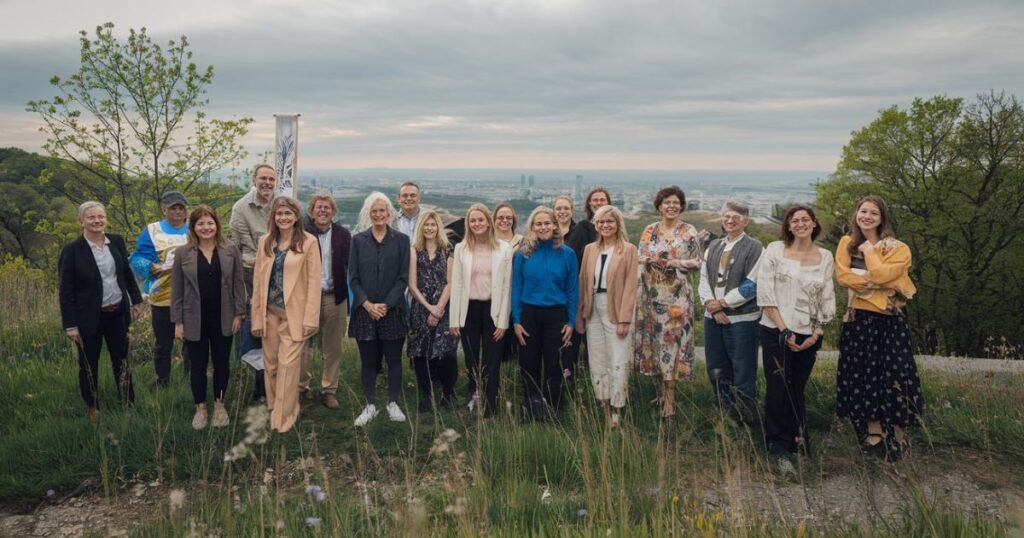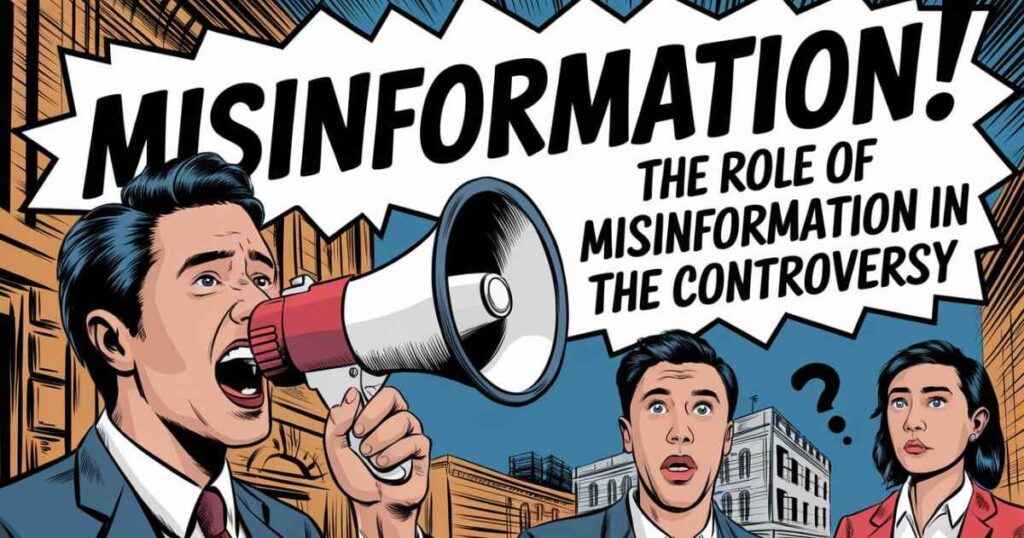Have you heard the buzz about the Human Gathering? It’s been making waves lately, but not for the reasons you might think. Grab a cup of coffee and settle in, because we’re about to dive deep into this fascinating controversy that’s got everyone talking.
What’s All the Fuss About?
Picture this: You’re scrolling through your social media feed, and suddenly you see a headline that makes you do a double-take. Human Gathering Exposed as Fake! Intriguing, right? That’s exactly how this whole saga began back in 2021.
The Human Gathering, for those not in the know, is supposed to be this cutting edge annual conference that’s been around since 2015. It’s all about bringing together the brightest minds to chat about cool stuff like AI, biotech, and virtual reality. Sounds legit, doesn’t it?
But here’s where things get spicy. Rumors started swirling that this whole shebang might be nothing more than smoke and mirrors. Some folks were claiming it was a scam, taking people’s hard-earned cash without actually hosting any events.
The Human Gathering: Fact or Fiction?
Now, let’s put on our detective hats and dig into what we actually know about this mysterious gathering. According to the official story, it’s been happening every year since 2015, focusing on all sorts of futuristic goodies like artificial intelligence, biotechnology, and even life extension. Sounds like something straight out of a sci-fi novel, doesn’t it?
The idea behind it is pretty noble they want to shape a future where tech makes our lives better, not worse. Think less robot overlords and more robots doing our laundry while we chill. They claim to bring together experts from all over to hash out how we can make sure new tech doesn’t go off the rails.
But here’s the kicker despite all these lofty goals, there’s been a surprising lack of buzz about it in the mainstream media. You’d think an event talking about the future of humanity would be all over the news, right? This radio silence is one of the things that’s got people raising their eyebrows.
The Plot Thickens: Origins of the Controversy

So, how did we go from cool tech conference to potential scam? It all kicked off in early 2021 when some social media sleuths started asking questions. They were wondering why there wasn’t more info out there about this supposedly game-changing event.
The rumor mill went into overdrive, with claims flying around that the conference was collecting registration fees but not actually hosting any events. It was like a game of telephone gone wild each retelling added a new layer of intrigue.
But here’s where it gets interesting. When people started digging, they couldn’t find any solid evidence to back up these claims. It was all hearsay and speculation. The plot was thickening faster than a bowl of instant pudding!
The Case for Legitimacy
Now, let’s play devil’s advocate for a moment. What if the Human Gathering is legit? There are some folks out there who swear by it. They say it’s this amazing melting pot of ideas where you can rub elbows with some of the brightest minds in tech.
Supporters paint a picture of an event that’s all about fostering creativity and building connections. They claim it’s like a mental spa day you go in feeling blah and come out buzzing with new ideas and perspectives.
And let’s not forget the feel good factor. Advocates say the Human Gathering is all about promoting empathy and understanding. In a world that sometimes feels like it’s tearing itself apart, that’s not a bad goal to have, right?
The Skeptics Corner
But for every supporter, there’s a skeptic ready to poke holes in the story. They’ve got some pretty compelling arguments, too. Let’s break it down:
- Lack of Transparency: For an event that’s supposed to be changing the world, there’s a surprising lack of info about who’s running the show. No names, no faces it’s like trying to pin jelly to a wall.
- Too Good to Be True?: The claims about what this gathering can achieve are, well, let’s just say they’re ambitious. Redefining the future of humanity? That’s a tall order for a weekend conference.
- Where’s the Buzz?: If this thing is as big as they say, why isn’t it trending? The lack of mainstream coverage is making people scratch their heads.
- Show Me the Evidence: Hard facts about past events are as rare as hen’s teeth. No photos, no testimonials from big names it’s all very hush-hush.
Read Also: Phillipa Mariee: The Unstoppable Force Reshaping WWE Women’s Division
The Plot Twist: Enter the Viral Video
Just when you thought this story couldn’t get any wilder, along comes a video that sets the internet on fire. Picture this: grainy footage, shaky camera work, and what looks like attendees being treated poorly at what’s claimed to be the Human Gathering.
It spread faster than gossip in a small town, with people up in arms about the supposed mistreatment. But hold your horses things aren’t always what they seem.
Unmasking the Hoax
Here’s where our story takes another turn. After the initial outrage died down, some tech-savvy folks decided to take a closer look at that viral video. And boy, did they find some interesting stuff:
- The video quality was suspiciously low for 2021 standards.
- The lighting didn’t quite add up it was like someone had been playing around in a video editing suite.
- And those attendees? Turns out they were actors. Oops!
It was like watching a magician reveal their tricks. Suddenly, what seemed like damning evidence turned out to be nothing more than smoke and mirrors.
The Aftermath: Lessons Learned
So, what can we take away from this whole debacle? Here are a few nuggets of wisdom:
- Don’t Believe Everything You See: In the age of deepfakes and photoshop, seeing isn’t always believing.
- Check Your Sources: Before you hit that share button, take a minute to see where the info’s coming from.
- Keep an Open Mind: But not so open that your brain falls out. A healthy dose of skepticism goes a long way.
- The Power of Misinformation: This whole saga shows just how quickly false info can spread. It’s like a digital game of telephone.
- The Importance of Media Literacy: Being able to spot fake news is becoming as important as reading and writing.
What’s Next for the Human Gathering?

As the dust settles on this controversy, you might be wondering what’s next for the Human Gathering. Well, that’s the million dollar question, isn’t it?
The organizers seem to be keeping a low profile for now. Maybe they’re waiting for the storm to blow over, or perhaps they’re planning their next move. One thing’s for sure they’ve got some PR work to do if they want to shake off the stink of this scandal.
But here’s a thought what if this whole controversy ends up being a good thing in the long run? It’s certainly got people talking about important issues like tech ethics and the future of humanity. Sometimes, a little shake-up is what we need to get the conversation flowing.
The Bigger Picture: Technology and Trust
This whole saga raises some pretty big questions about our relationship with technology. We’re living in an age where the lines between real and fake are getting blurrier by the day. From deepfakes to AI-generated content, it’s getting harder to know what or who to trust.
The Human Gathering controversy is just one piece of a much larger puzzle. It’s a wake-up call, reminding us that we need to stay on our toes in this digital age.
But it’s not all doom and gloom. This could be the push we need to develop better tools and strategies for navigating the murky waters of online information.
Your Turn: What Do You Think?
Now that we’ve laid out all the facts (and fiction), what’s your take on the Human Gathering controversy? Is it a well-intentioned conference that got caught up in a whirlwind of misinformation? Or is there more to the story that we haven’t uncovered yet?
Whatever you believe, one thing’s for sure this story is a perfect example of why we need to keep our critical thinking caps on in the digital age.
It’s a reminder that in a world of clickbait and viral content, taking a step back and asking questions is more important than ever.
So, the next time you see a headline that seems too wild to be true, remember the Human Gathering saga. Take a deep breath, do a little digging, and make up your own mind. After all, in the age of information (and misinformation), being a savvy consumer of content is your best defense.
And who knows? Maybe one day we’ll look back on this whole controversy and laugh. Or maybe it’ll be remembered as the moment we all started taking online information a little more seriously. Either way, it’s been one heck of a ride, hasn’t it?
The Origins of The Human Gathering
The Human Gathering burst onto the scene in 2015, positioning itself as a cutting-edge conference focused on the intersection of technology and humanity. From its inception, the event promised to bring together thought leaders, innovators, and visionaries to discuss the future of our species in an increasingly digital world.
With a focus on emerging technologies like artificial intelligence, biotechnology, virtual and augmented reality, and robotics, The Human Gathering quickly gained a reputation as a must-attend event for those at the forefront of technological innovation. The conference mission? To shape a better future where technology enhances human life in sustainable and ethical ways.
But as the event grew in popularity and influence, so did the whispers of doubt and skepticism.
The Rise of the Fake Conference Claims
In early 2021, social media platforms began to buzz with rumors that The Human Gathering was nothing more than an elaborate scam. Claims circulated that the conference organizers were collecting hefty registration fees without actually holding any events.
These allegations spread like wildfire across various online communities, fueled by the lack of mainstream media coverage and the event’s focus on controversial topics like artificial general intelligence and life extension. The seed of doubt had been planted, and it quickly took root in the fertile soil of the internet.
Read Also: Famousparenting Momlife: Navigating the Tightrope of Career, Fame, and Family
Examining the Evidence: Fact vs. Fiction
To get to the bottom of this controversy, let’s examine the key pieces of evidence both for and against the legitimacy of The Human Gathering.
Arguments Supporting the Fake Conference Theory
- Lack of Transparency: Critics point to the scarcity of detailed information about event planning, venues, and organizers as a red flag.
- Ambitious Claims: The event’s promise to redefine our shared future strikes some as implausibly grandiose.
- Limited Media Coverage: For an event of its purported scale and importance, The Human Gathering has received surprisingly little attention from mainstream media outlets.
- Viral Video Controversy: A video allegedly showing mistreatment of attendees circulated online, further fueling suspicions.
Evidence Supporting The Human Gathering’s Legitimacy
- Consistent Annual Events: Despite the controversy, The Human Gathering has consistently held annual conferences since 2015.
- Attendee Testimonials: Many participants have shared positive experiences from past events, offering detailed accounts of keynote speeches, panel discussions, and networking opportunities.
- Expert Speakers: The conference has featured renowned speakers from various fields, lending credibility to its claims.
- Impact on Tech Discourse: Discussions and ideas from The Human Gathering have influenced conversations in the tech industry, suggesting real-world impact.
The Role of Misinformation in the Controversy

As we navigate this complex issue, it’s crucial to consider the role of misinformation in shaping public perception. In an age where false information can spread at lightning speed, even unfounded rumors can quickly gain traction and appear credible.
The Human Gathering fake controversy serves as a prime example of how easily misinformation can take hold, especially when it concerns topics that are already controversial or poorly understood by the general public.
The Impact of Emerging Technologies on Public Perception
It’s worth noting that The Human Gathering’s focus on cutting-edge technologies like AI, biotechnology, and life extension may have contributed to the skepticism surrounding the event. These fields often spark heated debates and can be difficult for the average person to fully grasp.
As a result, discussions about these topics can sometimes veer into territory that sounds more like science fiction than reality, potentially fueling doubts about the legitimacy of events centered around them.
The Importance of Critical Thinking in the Digital Age
The Human Gathering fake controversy underscores the vital importance of critical thinking and media literacy in our increasingly digital world. As consumers of information, we must learn to:
- Question sources and seek corroborating evidence
- Be wary of sensationalized claims
- Look for multiple perspectives on complex issues
- Understand the difference between fact and opinion
- Recognize the signs of misinformation and disinformation campaigns
By honing these skills, we can better navigate the often murky waters of online information and make more informed judgments about controversial topics.
Regardless of where you stand on the legitimacy of The Human Gathering, this controversy offers valuable lessons for both event organizers and attendees:
- Transparency is key: Clear, detailed information about event planning, organizers, and activities can help build trust and credibility.
- Manage expectations: While ambitious goals are admirable, overly grandiose claims can breed skepticism.
- Engage with critics: Address concerns and rumors head-on rather than allowing them to fester unchallenged.
- Document thoroughly: Comprehensive records of past events can help counter claims of illegitimacy.
- Foster a community: Building a strong, vocal community of supporters can help weather controversies and misinformation campaigns.
The Bigger Picture: Technology, Society, and Trust
The Human Gathering fake controversy is just one example of a larger trend at the intersection of technology, society, and trust. As we continue to grapple with rapid technological advancement, we’re likely to see more instances where the line between reality and fiction becomes blurred.
This presents both challenges and opportunities:
- Challenges: Maintaining public trust, combating misinformation, ensuring ethical development of new technologies.
- Opportunities: Fostering more informed public discourse about technology, developing better systems for verifying information, creating more transparent and accountable tech institutions.
Moving Forward: Embracing Skepticism While Fostering Innovation
As we conclude our exploration of The Human Gathering fake controversy, it’s clear that there are no easy answers. The truth, as is often the case, likely lies somewhere in the middle of the extreme viewpoints.
What’s certain is that as we continue to push the boundaries of technology and human potential, we’ll need to find ways to balance healthy skepticism with open-minded curiosity. Only by doing so can we hope to navigate the complex landscape of emerging technologies and their impact on society.
The Future of Tech Conferences in a Post-Truth Era
As we move forward, it’s clear that events like The Human Gathering will need to adapt to an environment where trust is increasingly hard to come by.
Future tech conferences may need to prioritize transparency, provide more concrete evidence of their activities, and work harder to build credibility with both attendees and the general public.
This could involve:
- More comprehensive documentation of events
- Greater engagement with mainstream media outlets
- Increased transparency about organizers and planning processes
- Better integration of online and offline components to reach wider audiences
Conclusion
In many ways, The Human Gathering and the controversy surrounding it serve as a mirror, reflecting our collective hopes, fears, and uncertainties about the future. Whether you view it as a legitimate forum for groundbreaking ideas or a cautionary tale about the power of misinformation, there’s no denying its significance in the broader conversation about technology and humanity.
As we move forward, let’s carry with us the lessons learned from this controversy. Let’s approach new ideas with both excitement and critical thinking, always striving to separate fact from fiction. And most importantly, let’s remember that in this rapidly changing world, our greatest asset is our ability to learn, adapt, and grow together.
The story of The Human Gathering is far from over. As we continue to unravel its mysteries, we’re not just learning about a single event we’re learning about ourselves and the world we’re building. And that, perhaps, is the most valuable gathering of all.

Ella Marie is a dedicated fashion enthusiast committed to curating the latest trends and timeless styles. With a keen eye for detail and a passion for elegance, they ensure every visitor finds inspiration and sophistication on the site.








